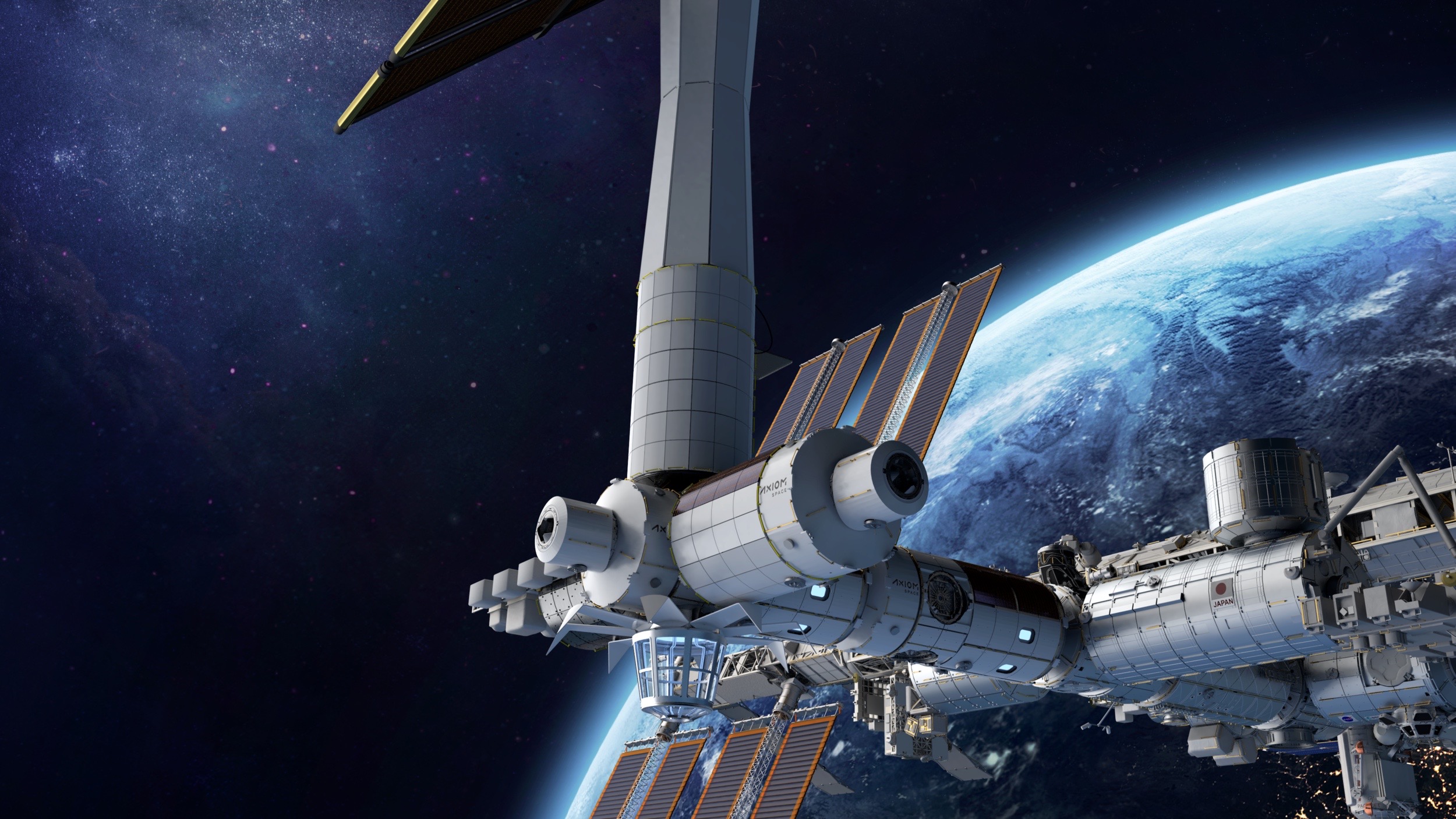NASA working to get private space stations up and running before ISS retires in 2030
Microgravity research and technology development on the ISS will continue "full throttle" through the end of 2030, the agency says.

Breaking space news, the latest updates on rocket launches, skywatching events and more!
You are now subscribed
Your newsletter sign-up was successful
Want to add more newsletters?

Delivered daily
Daily Newsletter
Breaking space news, the latest updates on rocket launches, skywatching events and more!

Once a month
Watch This Space
Sign up to our monthly entertainment newsletter to keep up with all our coverage of the latest sci-fi and space movies, tv shows, games and books.

Once a week
Night Sky This Week
Discover this week's must-see night sky events, moon phases, and stunning astrophotos. Sign up for our skywatching newsletter and explore the universe with us!

Twice a month
Strange New Words
Space.com's Sci-Fi Reader's Club. Read a sci-fi short story every month and join a virtual community of fellow science fiction fans!
SEATTLE — With the International Space Station (ISS) scheduled to retire in 2030, NASA is placing a huge emphasis on a seamless shift to future private space stations in low-Earth orbit. Many details of that transition are still being worked out, agency officials say.
"The reason this is so important is because we do believe that the impact of a gap will be disruptive," said ISS director, Robyn Gatens, during a panel discussion at the International Space Station Research and Development Conference earlier this month.
A few key players who could be impacted by that "gap" include scientists looking to send research experiments to space as well as crew and cargo transportation providers. Given NASA's expected two-year transition period, a commercial successor must be operating by 2028 to prevent any such complications.
To plan for a smooth shift of research and operations to private space stations by 2030, the White House Office of Science and Technology Policy issued a strategy in March of this year that outlines a plan of action. The policy's overlying objective is for the U.S. to lead in "an emerging marketplace run by commercial and private enterprises engaged in LEO," ultimately allowing NASA to maintain an "uninterrupted U.S. presence" in low-Earth orbit.
Related: NASA looks to private outposts to build on International Space Station's legacy
"The reason we at the White House level released a policy on this topic this year is to prepare seven years in advance, so that we do not have to plan for a scenario where there's a gap," Ezinne Uzo-Okoro, an assistant director for space policy at the White House Office of Science and Technology Policy, said at the conference.
Because commercial space station services is still an unproven market, however, carrying out such a seamless transition will not be without its challenges. For instance, experts will need to worry about things like technical costs and scheduling risks in terms of design and development of the space station platforms, John Mulholland, the Boeing program manager for the ISS program, said at the conference. "They will get there but it will not be easy."
Breaking space news, the latest updates on rocket launches, skywatching events and more!
Mulholland also underscored the need for increasing the budget for the United States Deorbit Vehicle (USDV), a spacecraft expected to dock on the ISS before performing a safe deorbit and re-entry sequence back to Earth. (NASA is expected to award the contract for the design and production of this vehicle in March 2024).
The new funds are also likely to be used for an upgrade that significantly improves the science capability of a physics instrument on the ISS that hunts for dark matter, cosmic rays and antimatter galaxies. The detector, known as the Alpha Magnetic Spectrometer (AMS), was installed as an external module on the ISS in 2011. Its upgrade is expected to take an entire cargo flight, which "deserves a plus-up in the budget ahead," Mulholland said.
With a majority of the research on the ISS funded by the federal government, and the Fiscal Responsibility Act of 2023 suspending the debt ceiling until the end of 2024, "we will be faced with difficult budget cycles in the near future," he said.
Angela Hart, manager for NASA's Commercial Low Earth Orbit Destinations (CLD) program, said the space agency will pass on its expertise in technology to private space station providers, but such responsibility and involvement will decrease as the latter finds surer footing. Over the next year, NASA will focus on working with partners and the science community to avoid cost overruns and schedule issues, she explained during a talk on Aug. 3.
After the ISS retires in 2030, NASA is likely to operate a national laboratory that would support various commercial platforms. Although details are few, the LEO National Lab, which is still a working name referring to "low-Earth orbit," is expected to represent all government-sponsored research to be carried out on a combination of available private space stations.
"The idea is that it would be platform agnostic. So it's not a single place, it's not a single laboratory," said Gatens. "One really important tenet that we're looking at is it needs to support but not compete with commercial platforms and service providers."
Currently, ISS partners including Japan, Canada and the European Space Agency (ESA) have committed to support the ISS until its phased retirement operation planned for 2030. Russia has confirmed its support only until 2028, however, after which it will focus on building its own orbital space station, whose first module is expected to launch in 2027.

Sharmila Kuthunur is an independent space journalist based in Bengaluru, India. Her work has also appeared in Scientific American, Science, Astronomy and Live Science, among other publications. She holds a master's degree in journalism from Northeastern University in Boston.
